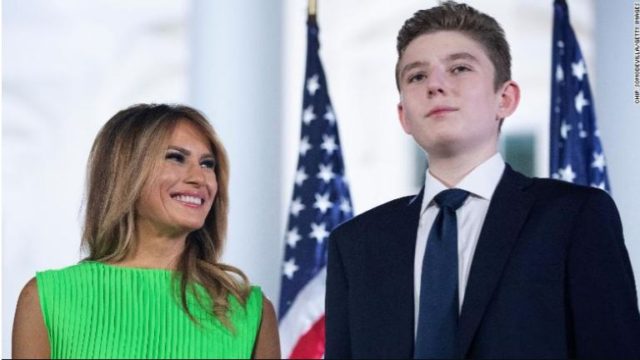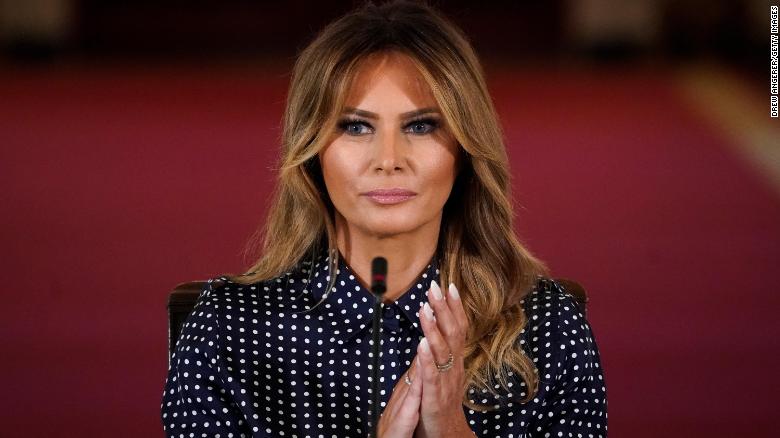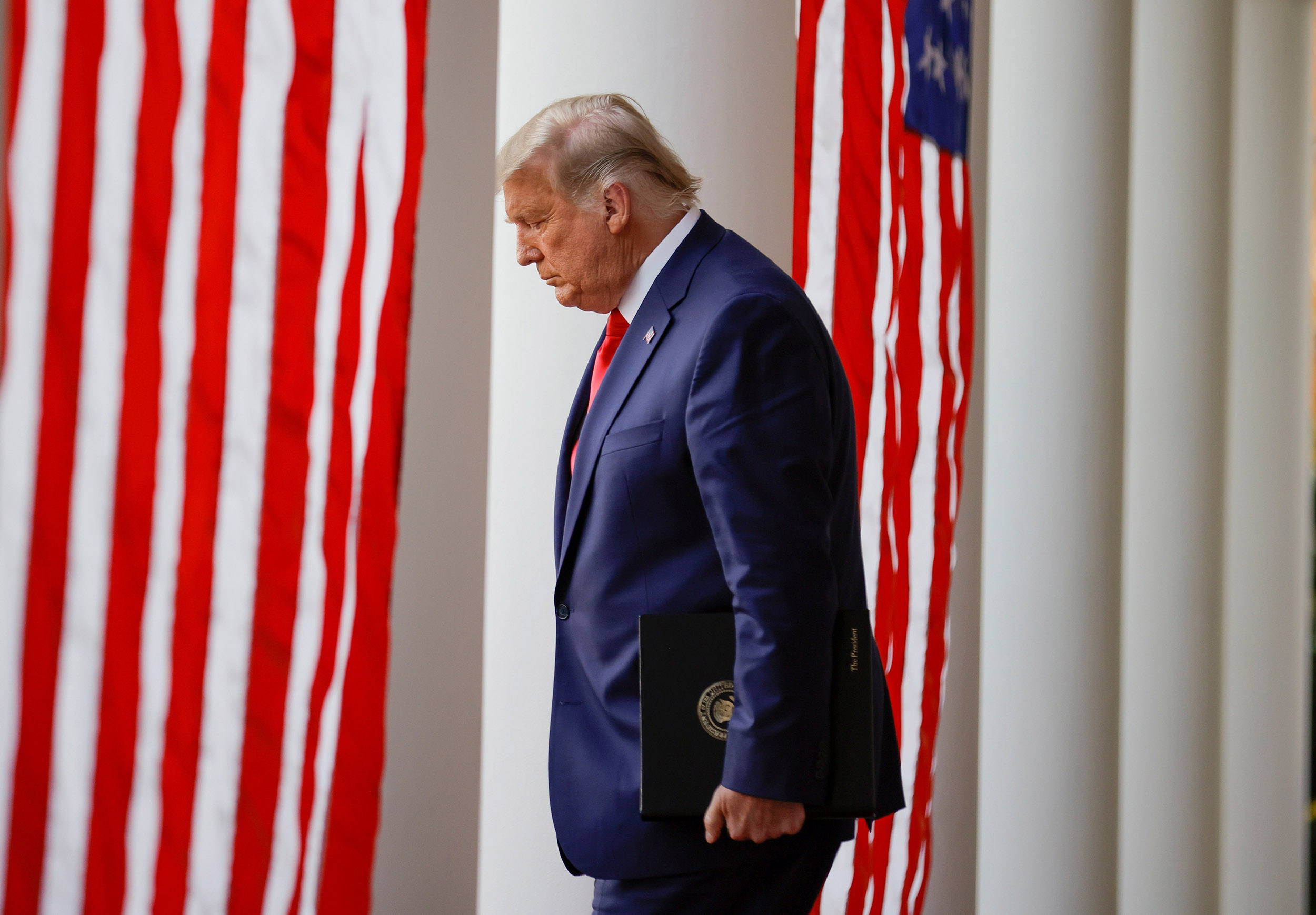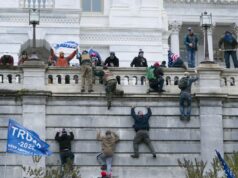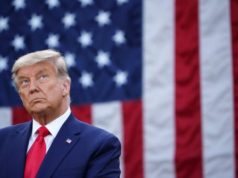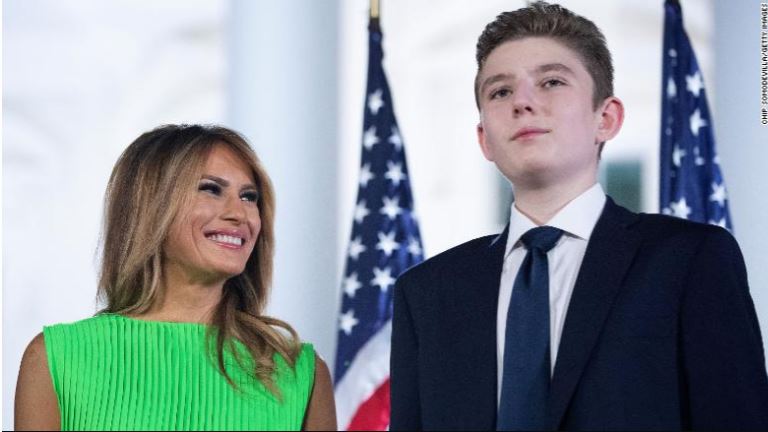
Stephen Collinson, CNN
President Donald Trump’s refusal to tell America the truth about the pandemic in a bid to save his political skin, on display at a potential super-spreader rally in Iowa on Wednesday night, is fostering a vacuum in national leadership and crucial public health mobilization as a winter of sickness and death looms.
Trump is touting his own recovery from Covid-19 with a cocktail of expensive experimental therapies available to almost no one else in the world as proof there is nothing to fear from a disease that has killed more than 216,000 Americans.
The President, 19 days before the election, is trying to pull the wool over voters’ eyes by arguing the pandemic is almost over, in the hope they won’t hold him to account for his poor management of the crisis. On Wednesday, he used his own rebound — and the symptom-free experience of his son Barron, who also tested positive — to yet again downplay the virus.
“Open your states!” Trump said at a rally at which Air Force One formed a backdrop.
“The cure cannot be worse than the problem itself,” he said, and again wildly claimed that his own strength meant he probably didn’t need the cutting-edge therapies he was given in the hospital at Walter Reed National Military Medical Center.
“Maybe I would have been perfect anyway,” Trump said.
The government’s top infectious disease specialist, Dr. Anthony Fauci, who Trump has repeatedly attacked in recent days, said Wednesday that although he was glad the President had recovered, his case should not be seen as indicative of everyone who gets infected.
“That’s sort of like saying somebody was speeding in a car at 95 miles an hour and didn’t get in an accident, so I can go ahead and speed and not get in an accident,” Fauci told “CBS Evening News.”
In the real world, rather than Trump’s fantasy version, the pandemic is getting worse quickly. Average daily infections are at more than 51,000. The disease that the President says should no longer “dominate” American life is killing more than 700 citizens a day. The high baseline of cases that is the legacy of the failure to better suppress the virus is leaving epidemiologists in despair at the suffering that will inevitably follow as the weather cools and people move indoors.
The darkening picture would have surely dominated the second presidential debate on Thursday night. But the event was canceled amid a drama over the President’s own diagnosis with the disease two weeks ago. Instead, Trump and Democratic nominee Joe Biden will hold dueling town halls on NBC and ABC.
Trump’s tactic of minimizing the crisis is rooted in his quest to maximize turnout from his most loyal base voters, whom he and his conservative media allies constantly target with misinformation about the virus. His rallies and public acts send a visual message that life is back to normal, even as polls suggest that clear majorities of Americans disapprove of his handling of the crisis — one of the dominant issues of the election.
Trump is not just risking the health of his supporters. People who get the virus at his rallies also can pass it on to others in wider society. But the President’s word is still law among the voters who have disregarded reports that previous Trump rallies and events have spread the virus and are flocking to his events in a remarkable show of support for his reelection bid.
“If I’m gonna get sick and die, I guess it’s my turn,” one rallygoer, Brenda Strothoff, told CNN’s Jim Acosta in Des Moines on Wednesday night.
“I feel like, yes, the Covid is kind of dangerous and it can be for some people, but for the most of us, we’re gonna go on with life,” Strothoff said.
Another rallygoer, John Stanford, told Acosta that while he didn’t want to give anybody the virus, he believed infection totals were inflated and that “I figured the sooner we all get it, the sooner we’ll be done with it.”
Questions Trump is not even asking
The latest Trump rally in Des Moines, in front of a packed crowd that largely spurned masks and ignored social distancing, took place in a state where the virus is taking a deeper hold. Iowa has one of the highest testing positivity rates — 18.8% — in the union.
Still, the sentiments of Trump’s supporters point to an important question: Has society got the balance right between fighting the pandemic and preserving as much of normal economic and social life as possible? Lockdowns and restrictions have inflicted a terrible impact on employment, family and cultural connections, and the country’s mental health and morale. A generation of schoolkids is at increasing risk of a learning deficit that could set them back years.
Trump has also taken to pointing out that European countries feted by the media for doing a better job than he has in containing the virus are now facing steep escalations in cases. Those nations, however, did experience a respite in the summer, are starting from a lower baseline of infections than the US autumn spike and saved significant numbers of lives with a more stringent approach.
And the fatalistic view of some Trump supporters also fails to acknowledge the tragedies suffered by more than 200,000 families who have lost loved ones — many of whom did not have to die. It disregards the threat of hospitals being overwhelmed this winter, leading to agonizing choices for doctors and front-line workers, who are at extreme risk of taking on fatal virus loads themselves.
Reconciling these national, societal and moral dilemmas would in normal times land on the desk of the President: It’s what he’s elected to do. But Trump’s obsession with his own political prospects is leaving such questions unaddressed. His absence is also exacerbating a leadership vacuum elsewhere; for instance, in the failure of his administration, House Democrats and suddenly thrifty Republican senators to agree on a new Covid-19 economic rescue plan.
An engaged President, reminding a weary nation of the need to commit to another round of restrictions on American life during a grim winter until vaccines become available, could save tens of thousands of lives.
If Trump’s wins reelection on November 3, it seems highly unlikely that he will feel a greater sense of accountability to make a more genuine effort to combat the virus. And if he loses, it seems unlikely he will be in the mood to commit to using his remaining weeks in power to tackle an issue that led to his loss.
Biden: ‘What in the Lord’s name is happening?’
Biden, who is leading Trump in national polls and in many swing states, may eventually be called upon to pick up the pieces, and he has anchored his campaign in criticism of the President’s performance.
“The rest of the world is wondering, what in the Lord’s name is happening?” Biden said during a virtual fundraiser event on Wednesday.
“What we’re living through today is not normal,” the former vice president said, according to a pool report.
“If the American people elect me, we’re going to have an enormous task in repairing the damage (Trump’s) done. We have to be beating the virus, rebuilding the economy and figuring out how to restore American leadership around the world.”
The President’s negligence is not just having an immediate political impact. His constant undermining of social distancing measures and masks — the only current ways of limiting the virus — risks making a bad situation much worse.
Apparent hiccups with several trials being conducted by big pharmaceutical firms on vaccines and Covid-19 therapies are reemphasizing the importance of preventative measures. There was one optimistic sign on Wednesday, however, when the government’s top infectious disease specialist, Fauci, predicted a safe and effective vaccine would be widely available by April.
But the President’s dismissal of public health recommendations that are needed until then is causing despair among public health experts and front-line medics.
“It’s just a matter of time before we now see this terrible fall and winter surge. And this is going to be a horrible winter. We may see numbers that dwarf what we saw in March and April or during the summer, and I think we probably will,” said Dr. Peter Hotez, dean of Baylor Medical School’s National School of Tropical Medicine.
“And we’re also going to see a rise of mortality. This is going to be one of the most troubling times in our modern history in terms of the public being frightened, homeland security being affected, people worried about going outside, as the deaths mount,” Hotez told CNN’s Jake Tapper on Tuesday.
In a time of national peril, the White House is looked to to set priorities, to bring states together, to explain to Americans the extent of the challenge and to chart a route out of the emergency.
But Trump’s coronavirus task force is invisible, as CNN’s White House team reported Wednesday. Its leader, Vice President Mike Pence, is out campaigning — and, like Trump and his family members, holding events that are almost certain to spread the virus. The group’s most visible doctors, such as Fauci and Dr. Deborah Birx, haven’t appeared in public with the President for weeks.
At a time when other global leaders, including France’s Emmanuel Macron, Canada’s Justin Trudeau and Britain’s Boris Johnson, are leveling with their people about the difficult days to come and desperately working to get new spikes of infection under control with new restrictions and partial lockdowns while trying to save their economies, Trump falsely told Americans Wednesday that they were “rounding that final turn.”

